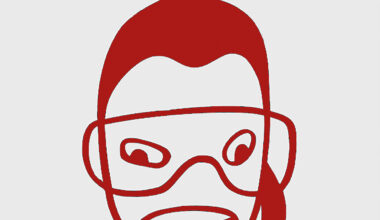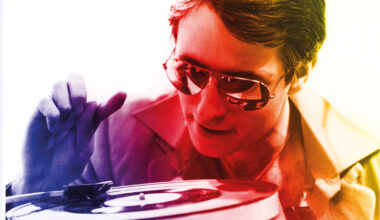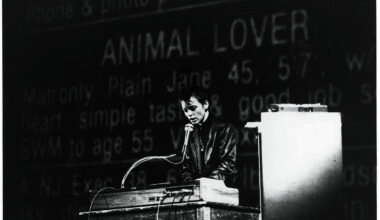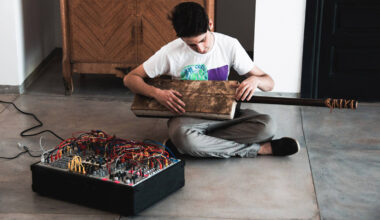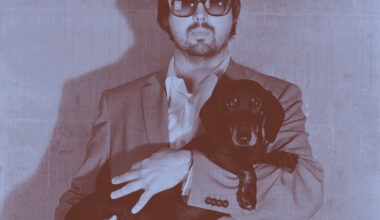Singer Martha Johnson and songwriter Mark Gane of Martha And The Muffins discuss the making of their influential 1980 new wave classic, ‘Echo Beach’
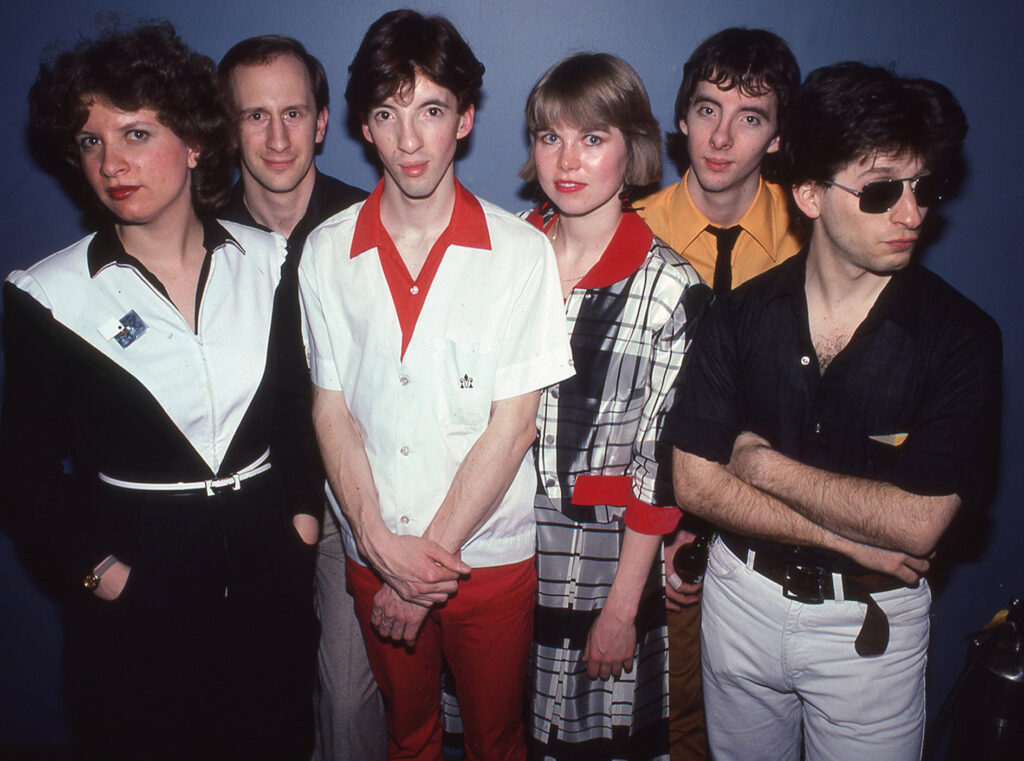
Mark Gane: “David Millar, my classmate at Ontario College of Art, invited me to start a band with him. He knew this woman who sang, and that’s how we got Martha on board. Over the summer of 1977 we worked on our sound, but nobody could agree on a band name. David Clarkson of the punk band The Diodes suggested the Muffins as an antidote to all the hardcore punk names. We went, ‘OK, just for one gig, then we’ll find a better name’, which we never did!”
Martha Johnson: “I did Theatre at York University in Toronto, but I was mostly exposed to music through my friends at high school in Thornhill, a northern suburb of Toronto. The Muffins were anti-punk – it didn’t work for us. We were new wave, and our influences were things like Roxy Music.”
Mark: “We did a five-song demo and our sax player Andy Haas sent it to Interview magazine in New York. He got a postcard back from their music critic Glenn O’Brien, saying something like, ‘Loved what I heard, can I do anything for you? By the way, Robert Fripp likes it too’. Apparently he was there when Glenn was playing it! Glenn arranged a gig at Hurrah in New York – the first time we’d played outside of Toronto – and Fripp was there, 20 feet offstage. That was terrifying.
“An A&R guy from Virgin Records also heard it, so he came to Toronto to hear us play, and within four months we’d been offered a contract with Virgin’s Dindisc Records. We recorded the first album, with ‘Echo Beach’ on it, at Manor Studios just outside Oxford. We’d been plucked from our tiny Toronto new wave scene, and suddenly ‘Echo Beach’ was a big hit.”
Martha: “Mark was a dictator. When he taught you a song, you had to sing the notes as he said, and you didn’t do a lot of interpretation except with your emotions. I was trying to evoke a feeling of nostalgia and longing for better times, getting away from the humdrum of the present. I’d had lots of boring jobs – I was the one who worked for the government as a clerk.”
Mark: “It was the third song I ever wrote, which is my excuse for the unconventional structure. The idea came from this awful summer job I had at art college as a wallpaper inspection clerk in a paint factory, and the second verse came from being down on Lake Ontario, looking back at Toronto at night.”
Martha: “It was a good song, it worked really well. I liked the guitar hook and the words were great. I love the way it starts – ‘I know it’s out of fashion and a trifle uncool / I can’t help it, I’m a romantic fool’. It’s very Roxy Music.”
Mark: “I had such a heavy Bryan Ferry influence – the 1930s jazz vibe and cabaret style. I mean, who in their right mind would sing ‘a trifle uncool’? You can imagine Noel Coward singing it, and Ferry was channelling that insouciant thing.
“I wasn’t a particularly good player in the early days, and the goal was to get from the beginning of a song to the end without making a mistake. The producer of our first two albums, Mike Howlett, rehearsed us to the point where my fingers were bleeding. To his credit, that was a good approach. He also suggested reintroducing the guitar hook in the middle of the song, which I thought was quite brilliant.”
Martha: “The staggering of the vocal – the ‘Echo beach / Far away in time’ at the end – that was very hooky. That was Mike’s idea too. Singing that line, I could hear in my voice that I had a cold, it did something that I could never quite reproduce. I liked that tone, a rough, throaty sound, kind of jazzy.”
Mark: “The great thing about recording is how idiosyncratic things get captured. Andy Haas had an avant-garde jazz background and he basically refused to do any sax solo twice. The one on ‘Echo Beach’ was very quirky, and the funny passing melody that works slightly against the chords – it makes it way more interesting.”
Martha: “I think he played it once live. We were all shocked!”
Mark: “Yeah, he did that solo note-for-note just once, just to bug us. If you saw the Muffins live, you would not hear that solo. We used two keyboards on early recordings – Martha’s Ace Tone Top-9 Combo Organ, and a Wurlitzer electric piano, because of the Roxy Music influence.”
Martha: “We opened for Roxy Music on tour in 1980. We played Wembley Arena and the Glasgow Apollo, then we were supposed to go to Europe, but Bryan Ferry got sick. I never met him. Anyway, we were back in Toronto and we got reports of ‘Echo Beach’ climbing up the British charts, so we came back to tour and do ‘Top Of The Pops’. It was very exciting.”
Mark: “Virgin really had their PR act together. They rented a restaurant and all the British media were there, or there was a big press thing on Richard Branson’s barge. If we’d been signed to a Canadian label, it would have never happened. We’d have gone back to what we were going to do in two years.”
Martha: “‘Echo Beach’ was never a hit in the States because I don’t think Virgin knew how to work the music scene there. It was kind of a failure and they pulled out.”
Mark: “It would have been a different story if it had done well there. We might have been more on the level of Eurythmics or Simple Minds. We’ve made a lot of great records since then, though, and been very happy from an artistic point of view.
“We worked with Daniel Lanois for three albums, he introduced us to Brian Eno, and we did a record with David Lord who produced Peter Gabriel and XTC. We went over to his studio in Bath and liked it so much we lived there for two-and-a-half years. But it was ironic that the biggest song for most people was the second single we ever released. Over the 40 years we’ve been recording, it’s let us do lots of other stuff.”
Martha: “We’re hard to pigeonhole. That’s maybe why we didn’t go further than we did.”
Mark: “Years after I wrote ‘Echo Beach’ I had a conversation with my dad, and he said any song that triggers that feeling of nostalgia is going to have legs. Something like ‘Over The Rainbow’ has such a strong feeling of loss and trying to regain something, of wanting a better life to come back. ‘Moon River’ is another. If I’m lucky, maybe ‘Echo Beach’ is somewhere in that neighbourhood. I’d love to think so.”
For more, visit marthaandthemuffins.com
